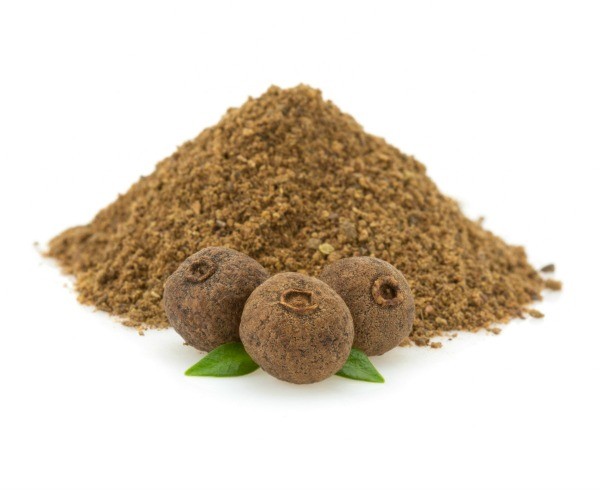Contents
Uses
Allspice, derived from pimento tree fruit, is used in many culinary dishes including soup, chili, dessert, meat, sauce, and even liquor.
Benefits
Allspice benefits many dishes with its unique flavor, however it is also nutritionally and medicinally beneficial with contents including fiber, carbs, calories, protein, vitamins C, A, and B6, manganese, calcium, iron, and magnesium. Allspice also has the following benefits:
- Digestion aid: allspice can soothe the stomach and facilitate healthy digestion. Eugene, a content of allspice, can get rid of diarrhea, constipation, vomiting, nausea, and excess flatulence.
- Healthy heart: potassium found in allspice releases cardiovascular system tension.
- Blood circulation: allspice contains copper and iron, which boosts blood circulation and stimulates the oxygenation of extremities.
- Immune system booster: allspice has exhibited antifungal and antibacterial effects.
- Dental health booster: allspice can protect gums against bacteria.
- Arthritis, gout, and hemorrhoid relief: allspice can lower inflammation and relieve pain in the body.
Other names
Wakame, dabberlocks, badderlocks, winged kelp
Cautions
Allspice may cause allergic reactions in certain individuals.
Allspice shouldn’t be consumed if you have ulcerative colitis and/or gastric ulcers.
Always consult a doctor if you’re planning on making major changes to your diet.
References
Sources:
- https://www.organicfacts.net/health-benefits/herbs-and-spices/allspice.html

